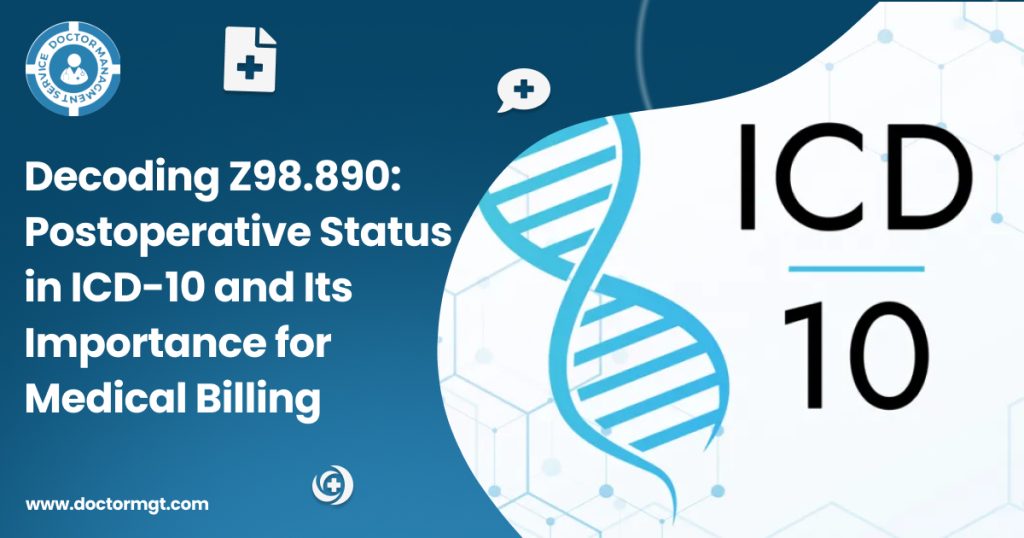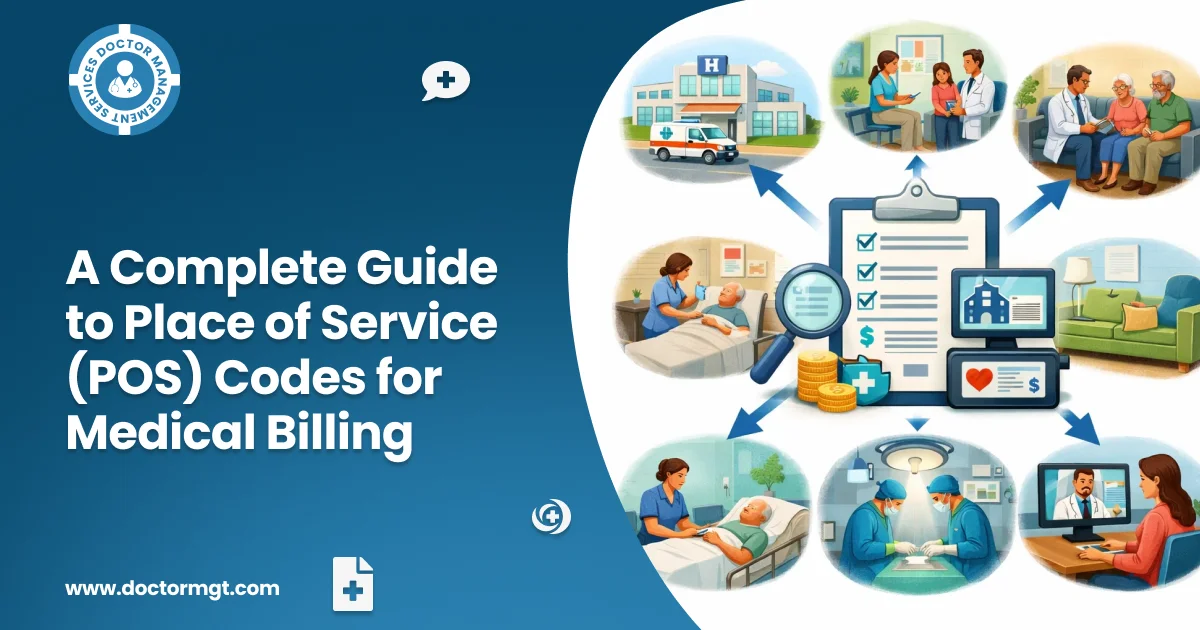Medical billing accuracy is not just a plus, but a must. Furthermore, for accurate billing, each ICD-10 code distinctively describes the general health condition of a patient, indicates the nature of clinical interaction, and avoids mistakes in claim processing.
The ICD-10 code Z98. 890, which refers to “Other Specified Postprocedural States,” is one that physicians, particularly surgeons and those involved in postoperative care, encounter frequently. Recognizing the importance of this code and its effective usage is important, particularly in the aspect of medical billing and reimbursement.
This article provides insight into the Z98. 890 code and the specific areas where providers should implement it.
Z98.890: What Does It Mean?
Diagnosis code Z98.890 defines ‘Postoperative state, unspecified’ and it refers to a patient who underwent surgery and does not have any active medical issues directly linked with the operation performed.
This code does not intend to document new or continuing medical conditions related to prior surgery. Rather, it conveys pertinent information to providers that the patient has undergone surgery at some point, especially if the surgery is likely to affect future treatment.
For example, if a patient had a total knee replacement, this code indicates in the patient record to indicate that the surgery has been done to the patient in the past but is not currently troubling the patient in any way. Such information may be valuable when assessing the patient for new complaints, prescribing medications, or contemplating further treatments.
Why Z98.890 Matters for Medical Billing
In medical billing, details matter. The Z98.890 code ensures that the patient’s history of surgery is captured accurately, allowing insurers to better understand the context of the care being provided. Coding this correctly is important for the following reasons:
Clarity in Medical History:
While evaluating a patient’s health conditions, insurance companies must also be aware of the patient’s current health conditions. By using Z98.890, you give a definite clue of the postoperative period, even in the absence of any complications. This clarifies a patient’s chart by offering a clear record of their surgical history.
Avoiding Claim Denials:
Incorrect coding may result in claim rejection or delayed payment. It is also very important to note that if a particular patient has undergone any surgery in the past, then this should be on record. Failure to include Z98.890 could lead to underpayment or denial of claims as the insurance provider may not have a complete clinical profile of the patient’s health condition.
Facilitating Accurate Reimbursement:
When Z98.890 is used correctly, it helps in the correct billing submission by putting the patient’s health status into consideration. Accurate coding also makes certain that both the physician and facility are paid for the services rendered without unnecessary disputes or adjustments.
For instance, a patient who had undergone surgery and now presents with pain in the left knee may be noted as M25.562 diagnosis code (pain in the left knee) along with Z98.890 to make them understand that the pain they are experiencing may be as a result of a surgery that was conducted. These codes together provide a bigger picture to the payer as well as enable the payer to process the claim in the right way.
Clinical Scenarios for Z98.890
There are various situations where Z98.890 should be applied in everyday clinical practice. Some common examples include:
1. Routine Postoperative Follow-Up: If a patient sees a healthcare provider for a follow-up after surgery and there are no complications or active conditions to address, they should use the code Z98.890 to document their postoperative status.
2. Post-Surgical Management: For patients who require long-term post-surgery management, such as those with implanted devices or orthopedic hardware, Z98.890 helps capture the fact that their care relates to a past procedure without suggesting complications.
3. Diagnostic Testing: If a patient is undergoing imaging laboratory tests, or other diagnostics to monitor their health after surgery, Z98.890 should be used to signify that the testing is being done in the context of postoperative care.
4. Preventive Care and Surveillance: Many patients require ongoing monitoring to ensure their surgery was successful and that no late complications arise. In these cases, Z98.890 serves as a reminder that the patient’s surgical history remains relevant to their current care.
Key Points for Physicians
- Use Z98.890 Correctly: This code is for patients who are in the postoperative phase without complications. It does not indicate active disease but rather provides a clinical context for future care.
- Link Z98.890 with Other Diagnostic Codes: When documenting postoperative patients, use Z98.890 in conjunction with codes that describe the patient’s current condition or complaints to provide a full picture of their health status.
- Leverage Billing Expertise: Working with professional medical billing service California can improve claim accuracy, reduce denials, and ensure your practice gets paid for the services provided.
- Stay Informed on ICD-10 Updates: Codes like Z98.890 are constantly being refined, so it’s important to stay updated on any changes in their usage to maintain compliance.







